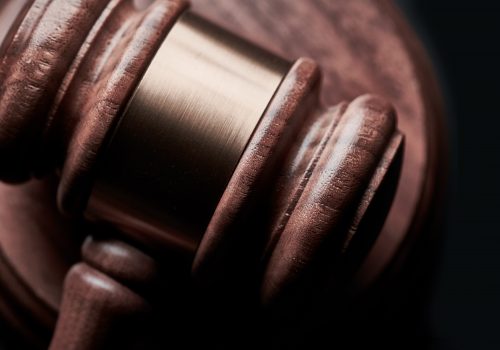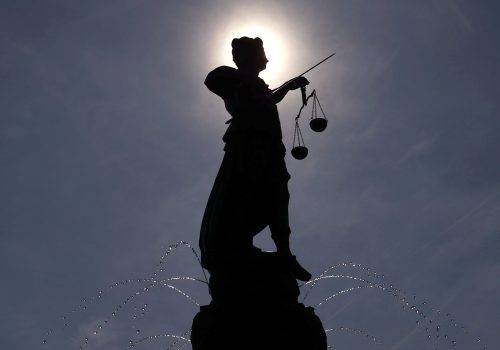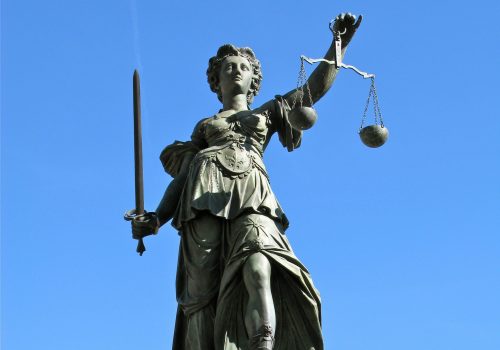How to hold the Islamic Republic of Iran accountable in European courts
The past year has witnessed increased and sustained calls to secure accountability for the Islamic Republic of Iran (IRI)’s atrocity crimes and gross human rights violations, particularly in response to the protests triggered by Mahsa Jina Amini’s death at the hands of the IRI’s morality police in September 2022. Accountability efforts have primarily focused on securing justice for victims and survivors of extrajudicial killings, mass arbitrary detention, torture, and other grave abuses committed by the IRI in response to peaceful protests. However, these efforts have also sought to hold IRI authorities to account for unpunished crimes during prior decades, including the IRI’s brutal crackdowns on protestors in November 2019 and the 1988 summary executions of thousands of Iranian political prisoners.
Because the judicial system in Iran is neither independent nor impartial—and is, in fact, responsible for unjust imprisonments and complicit in serious abuses in Iranian prisons—there are no viable domestic routes for accountability. However, there are paths available through national judicial systems in other states.
This report from the Atlantic Council’s Strategic Litigation Project explores accountability options that European states in particular can pursue, with the help of civil society. Throughout Europe, states have adopted universal jurisdiction provisions, which allow them to prosecute acts that constitute core international crimes—genocide, war crimes, and crimes against humanity—even if the crime was committed in a different state by and against foreign nationals. Sweden used these provisions to convict former IRI official Hamid Noury for murder and war crimes committed during the 1988 prison massacres, but so far no other IRI official has been tried under universal jurisdiction provisions for crimes committed in Iran, despite newfound opportunities to pursue these cases.
For decades, IRI officials have traveled throughout Europe, often owning assets and even reportedly receiving healthcare in different countries. At the same time, many victims and survivors of the IRI’s brutality have sought refuge in Europe—making the presence of IRI officials with no accountability all the more egregious, yet providing an opportunity for these victims and survivors to support investigations with eyewitness accounts and further information.
The countries included in this report—Belgium, England and Wales, France, Germany, the Netherlands, Sweden, and Switzerland—are just seven jurisdictions out of 148 United Nations member states worldwide that have laws allowing for the investigation and prosecution of some or all core international crimes, even when those crimes are committed beyond their own borders. These seven jurisdictions were selected as a focus of this report due to several factors including: the strength of their universal jurisdiction frameworks and frequency of use; their robust caselaw and policies for prosecuting atrocity crimes committed extraterritorially; the size of Iranian expatriate communities in these countries, especially those fleeing persecution and violence; and the possibility of travel by IRI officials to these jurisdictions.
This report details what each country’s universal jurisdiction provisions entail, how proceedings are initiated, and what victims’ rights are protected. It also gives an overview of each state’s relevant jurisprudence to date, analyzing the legal, practical, and political viability of future cases involving IRI violations, including in light of the country’s diplomatic relationship with Iran. Finally, it provides regional and country-specific recommendations to facilitate more cases against IRI perpetrators and to strengthen universal jurisdiction frameworks more broadly.
For media inquiries, please contact press@atlanticcouncil.org.
Related content
Image: 'Lady Justice' or Themis, the Greek God of Justice, outside the Supreme Court in Brisbane, Tuesday, April 28, 2009. (AAP Image/Dave Hunt)



